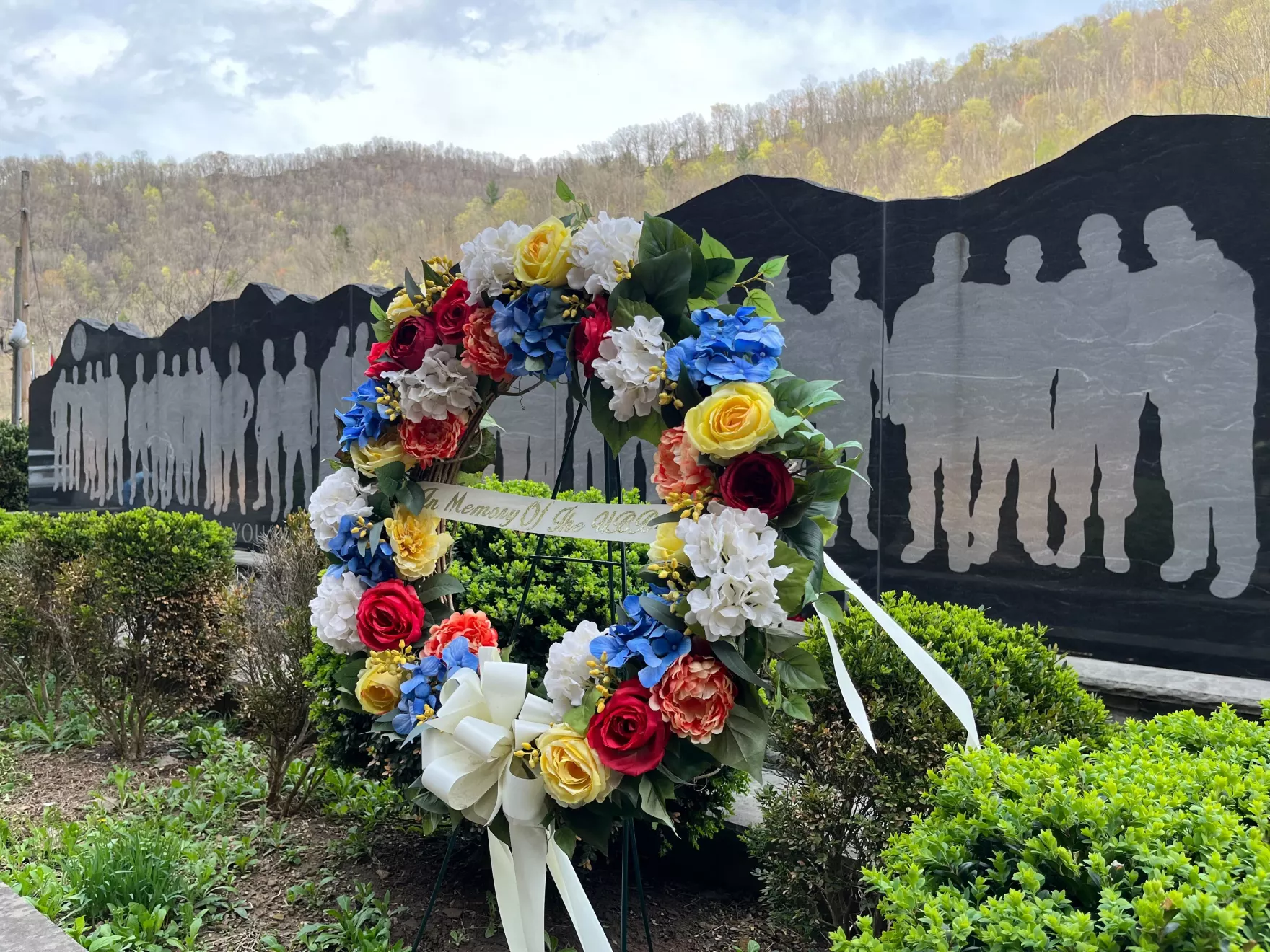This story was first published by Louisville Public Media on April 9, 2025 for the Appalachia + Mid-South Newsroom project.
It’s been 15 years since the Upper Big Branch Mine disaster in West Virginia. Family members and others from the community gathered over the weekend to remember those who lost their lives in one of the worst mining accidents of the past half century.
April 5 marked the 15th anniversary of the Upper Big Branch Mine disaster in West Virginia, which killed 29 coal miners when coal dust and methane ignited.
In the years that followed, multiple investigations concluded that the mine’s operators routinely skirted safety rules. It was enabled by a federal mine safety agency that was understaffed, inexperienced and failed to issue violations. The mining company’s CEO, Don Blankenship, was later convicted for neglecting safety and spent a year in federal prison.
The disaster sent shock waves of grief and anger through mining communities across the country and caused emotional wounds that, for many, are still healing. The Appalachia + Mid-South Newsroom’s Curtis Tate and Justin Hicks sat down to discuss how people are remembering those who lost their lives.
Hicks: Hey, Curtis.
Tate: Hey, Justin.
Hicks: So, just about everyone in the coal mining community knows about the Upper Big Branch mine disaster. But for those that maybe don’t know, can you tell us what happened?
Tate: Sure, the mine exploded in remote southern West Virginia on April 5, 2010. Twenty-nine workers were killed, and two were injured. We’re talking about really small communities there that were reeling, because everybody knows somebody. The cause was determined to be a combination of coal dust and methane. The dust is really flammable, and it’s supposed to be controlled with vents and water sprays. But investigations later found that Massey Energy skirted safety standards for years. And the CEO of that company was tried and convicted of a misdemeanor. He served a year in prison.
Hicks: Wow. That explosion was 15 years ago, of course, but every year they hold this memorial in Beckley, West Virginia. It’s the biggest town near Upper Big Branch Mine portal. I understand you attended this year, right? What was that like?
Tate: I went to that memorial service this past Saturday at the Raleigh County Courthouse. There were about a dozen people there, and they stood in silence as the names of all 29 miners were read. A bell rang for each one of them.
Hicks: Wow, that’s a really touching moment. Did you get a chance to talk to some of the family members of those miners?
Photo Credit: Curtis Tate/West Virginia Public Broadcasting
Tate: There were some family members at the courthouse, but they declined to be interviewed. And I respected that. But I also went to the mine site, which is some distance from Beckley, but still in Raleigh County. And I think you’ve been there, too?
Hicks: Oh yeah, I was there about a month ago. I remember there’s a memorial there with miner helmets on top of crosses, and there’s photos of each of the miners who died. And it’s so quiet and really somber there. Was anyone over there?
Tate: I met Pam Napper, who lost her son, her brother and her nephew in the explosion. Pam lives in Ohio now, but she comes down every year. She came on Saturday with her granddaughter, who was 19 months old when her father was killed at Upper Big Branch. She’s now 16. They happened to arrive at the mine site at the same time as Gary and Patty Quarles, who lost their son in the explosion. These families, at least, wanted the memorial to be at the mine site. The official memorial is a few miles up the road in Whitesville, in Boone County. They told me they were never given a say about it. Alpha Natural Resources, the successor company to Massey, paid for the memorial in Whitesville.
Napper: They should’ve put the memorial here. They should’ve put it right here. I don’t care if it’s just a stone with it on there.
Photo Credit: Curtis Tate/West Virginia Public Broadcasting
Hicks: Any other moments or takeaways that stood out to you talking to these family members?
Tate: There were so many. But here’s one where Pam talks about how her son got the job. Most of her family worked in coal mining, and it turns out that her brother, Timmy, was the one who hired her son, Josh. But Timmy called her first to warn her it was a dangerous job.
Napper: He said, “Before I hire him, you’ve got to make me a promise. If something happens to him, you can’t ever be mad at me.” I said, “Well, it’s good enough for dad, it’s good enough for you, it’s good enough for my brothers, niece, nephews.” That’s just how I left it.
Tate: And again, both Pam’s brother and son died that day 15 years ago.
Hicks: Wow, that’s incredibly eerie to hear that, but it’s also so important to remember these guys, too, 15 years later. Curtis, thanks so much for sharing your experience.
Tate: Happy to do it, thank you.
This story was produced by the Appalachia + Mid-South Newsroom, a collaboration between West Virginia Public Broadcasting, WPLN and WUOT in Tennessee, LPM, WEKU, WKMS and WKU Public Radio in Kentucky and NPR.
